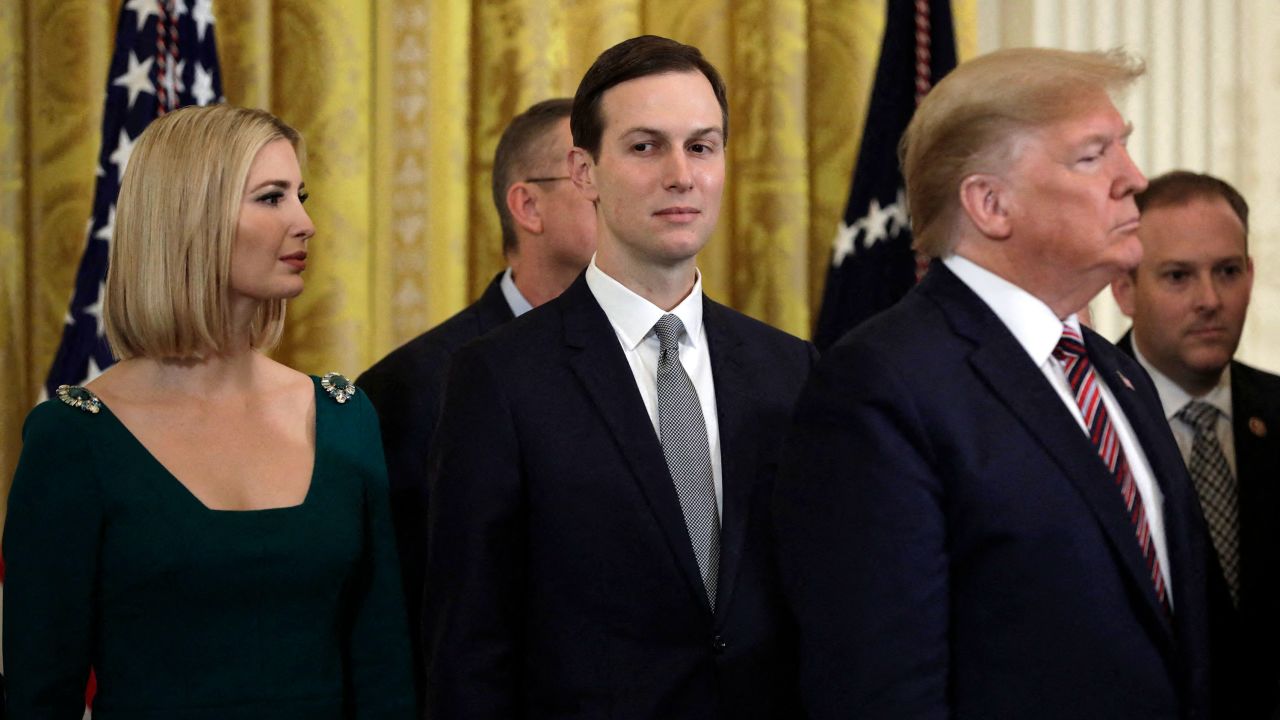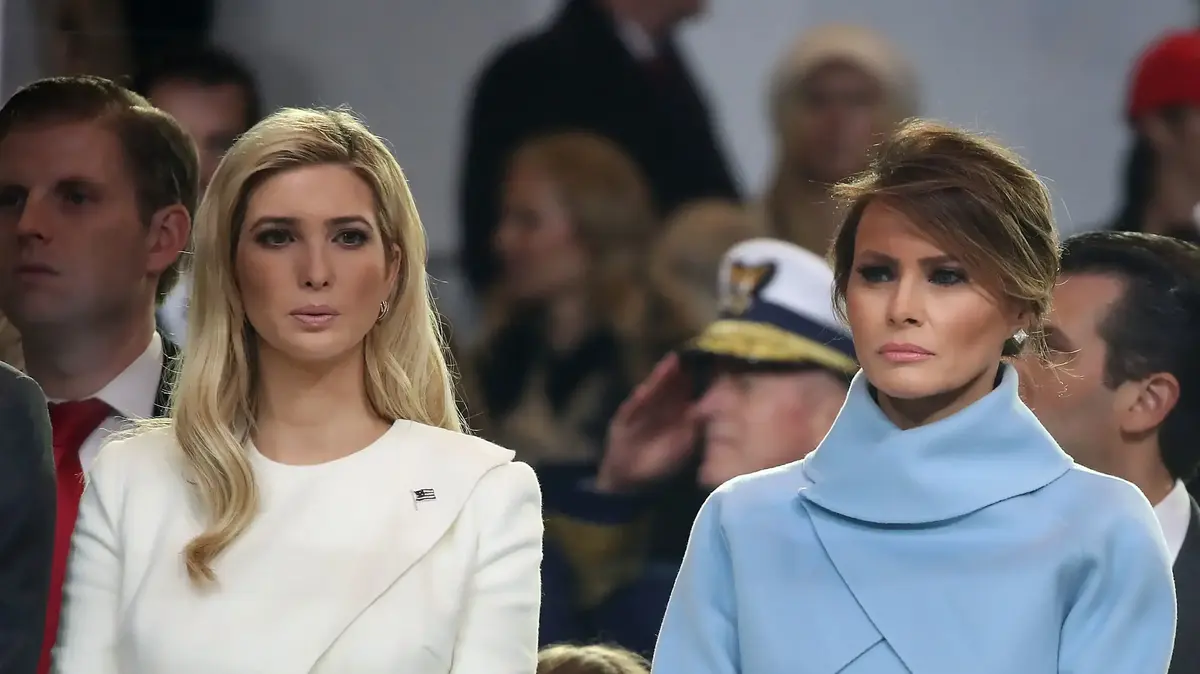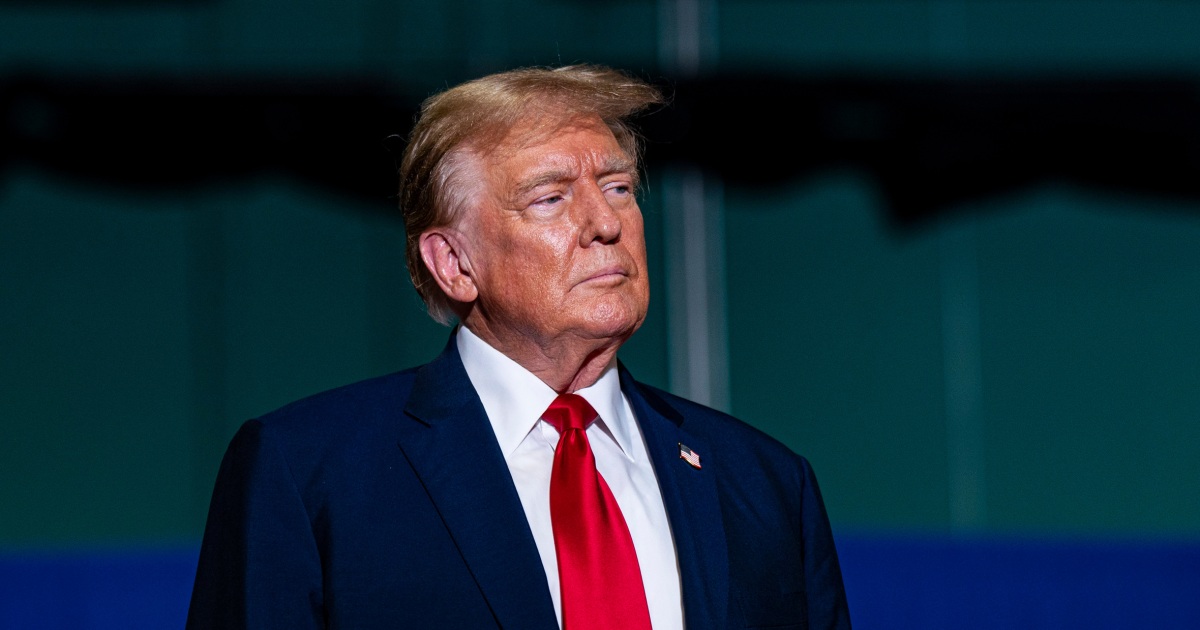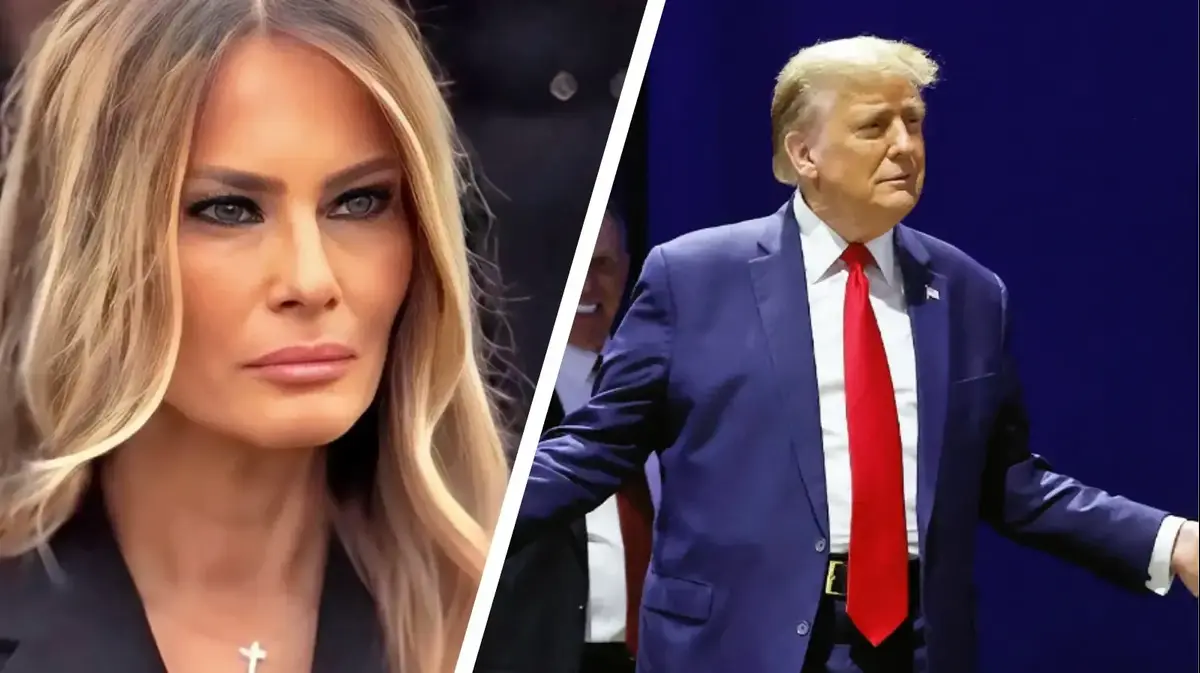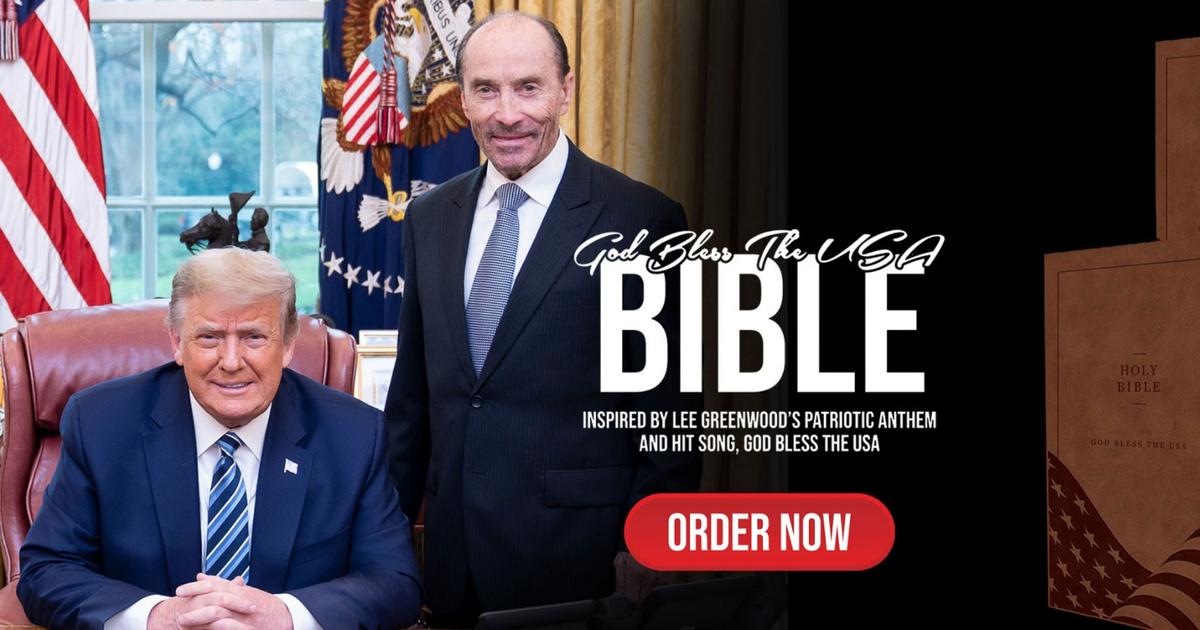The recent legal setbacks for Donald Trump 4:14
Washington (CNN) --
When he was president, Donald Trump nearly fired his daughter Ivanka Trump and son-in-law Jared Kushner from the White House via tweet, according to a new book by The New York journalist Maggie Haberman. Times.
Trump raised the possibility of firing Ivanka Trump and Kushner, who were senior White House advisers, during meetings with then-General Secretary John Kelly and then-White House counsel Don McGahn, Haberman writes.
At one point, he was about to tweet that his daughter and son-in-law were leaving the White House, but Kelly stopped him, telling him he had to talk to them directly first.
Liz Cheney says she won't remain a Republican if Donald Trump is the party's nominee in 2024
Trump never had that conversation, one of numerous instances in which he avoided interpersonal conflict, and Ivanka Trump and Kushner remained in the White House throughout Trump's presidency.
Still, Trump often underestimated Kushner, deriding him as mannered, Haberman writes.
"He looks like a child," Trump said after Kushner spoke publicly in 2017 following his testimony to Congress, according to the book.
In "Confidence Man: The Making of Donald Trump and the Breaking of America," Haberman recounts the chaos in the Trump White House, with new details about how Trump resisted calling out white supremacists and downplayed the deterioration of the White House. health of Justice Ruth Bader Ginsburg before her death in 2020 gave her a third justice on the Supreme Court.
But Haberman's book, which was obtained by CNN ahead of its release Tuesday, goes beyond the vicissitudes of the Trump administration to document how Trump's initial rise in the New York real estate and political world of the 1970s and 1980 permanently shaped his worldview, and by extension, his presidency.
advertising
"To fully understand Donald Trump, his presidency, and his political future, people need to know where he's coming from," writes Haberman, a CNN political analyst.
President Donald Trump with his daughter Ivanka Trump and her husband Jared Kushner attend a Hanukkah reception at the White House in Washington on December 11, 2019. (Credit: Yuri Gripas/Abaca Press/Sipa USA/AP)
The book is littered with examples going back decades that document Trump's obsession with physical appearance, his fixation on racial issues, his gravitation toward strong men, and his willingness to change his beliefs to fit the moment.
Trump tried to recreate the country to mimic the five boroughs of New York, Haberman writes, envisioning a presidency that functions as if he were one of the city's powerful Democratic Party bosses who controls everything.
The aides and advisers who spoke to Haberman for the book -- the author said she interviewed more than 250 people -- offer a critical portrait of a commander-in-chief who wasn't interested in learning the details of the job, who expected total loyalty from those around him and that he was more concerned with dominance, power and himself.
Haberman reports that Trump was once called a "sophisticated parrot" by campaign advisers.
Trump lashed out at his top generals during an infamous meeting in the "tank," the Pentagon's secure conference room, because they were telling him something he didn't understand.
"Instead of acknowledging it, he yelled at the teachers," Haberman writes.
Kelly, his former secretary general, is said to have described Trump as a "fascist" uniquely unsuited for the job of leading a constitutional democracy, according to Haberman, citing several who spoke with the retired Marine general.
Trump's spokesman, Taylor Budowich, said of the book: "While coastal elites obsess over boring books full of anonymous falsehoods, America is a nation in decline. President Trump is focused on saving America, and there's nothing fake news can do about it."
"That's the sexy part"
Earlier this year, Haberman's reporting for his book revealed Trump staff finding documents flushed down the toilet, in addition to numerous reports that Trump had a habit of tearing up presidential documents in violation of the Presidential Records Act.
The former president's handling of the documents has taken on new importance following the FBI's raid on his Florida residence and the revelation that he took highly classified documents there when he left the White House.
Mar-a-Lago raid inventory shows documents marked classified mixed with clothing, gifts and news clippings
Haberman interviewed Trump three times after he left the White House for the 2021 book, including once when he lied about sending his correspondence with North Korean leader Kim Jong Un to the National Archives, saying it had not been taken. "nothing of great urgency" from the White House.
(Kim's letters were among the items the Archives realized were missing in 2021.)
Trump's cavalier handling of classified material led to mistrust between the then-president and the intelligence community, Haberman writes, such as when Trump tweeted a sensitive image of damage to an Iranian facility in 2019.
Trump also protested after officials tried to make changes to the image.
"If you take the rating off that's the sexy part," Trump said, according to Haberman, who wrote that some saw nefarious ends in Trump's behavior, while others "believed he was operating on the emotional development of a 12-year-old, using intelligence data to attract attention".
The "Trump disorganization"
Haberman describes all the organizations that Trump has run, his companies, his campaign and the White House, as dysfunctional and with personnel who are often disparaged.
Executives at his company referred to Trump's company as "Trump's disorganization," according to the book, which includes examples of several unusual and attention-grabbing business practices.
That dysfunction spilled over into the Trump campaign and, ultimately, the White House, where Trump stepped over advisers and cabinet secretaries alike, dismissing advice offered by his own staff.
When then-candidate Trump came under pressure to denounce white supremacists like David Duke who supported his campaign in 2016, former New Jersey Governor Chris Christie was sent to urge Trump to distance himself more forcefully.
Trump was heard responding to Christie on the phone that he would get on it, but he didn't have to be too quick, Haberman writes.
"A lot of these people vote," Trump told Christie, before ending the call.
Is Donald Trump's political future in jeopardy?
2:17
Following the 2017 white supremacist march in Charlottesville, Virginia, when Trump claimed there were good people on "both sides," Trump's then-chief economic adviser Gary Cohn prepared a resignation letter.
Trump appealed for Cohn to stay.
"If you leave, you are committing treason," Trump said, according to Haberman.
Cohn agreed to stay on during the administration's efforts to pass its landmark tax reform later that year.
As Cohn left the Oval Office, Kelly whispered to him, "If I were you I would have shoved that paper up his ass," Haberman writes.
According to the book, several Cabinet officials believed that Trump had problems with women leaders.
He disliked former German Chancellor Angela Merkel, describing her in a meeting as "that b***h," Haberman writes.
Former Trump Defense Secretary Mark Esper believed that Trump's push to withdraw US troops from Germany was purely out of personal spite, according to the author.
The book shows Trump's inability to understand basic political concepts, such as Trump's suggestion in an interview with Haberman that the minority party in the Senate could block the legislation by skipping the vote.
"The vice president's vote doesn't count. It doesn't count. You might want to check it out," Trump said.
When the House of Representatives introduced the articles of impeachment against Trump for the first time in 2019, Trump reacted with a familiar refrain, according to the book: "I'll just sue Congress. They can't do this to me."
In the final year of his presidency, Trump tried to wish the coronavirus issue away, Haberman writes, publicly downplaying it out of an apparent belief that things only existed if openly discussed.
Before Ginsburg's death in 2020 created a last-minute vacancy on the Supreme Court that Trump filled just before the presidential election, Haberman writes that Trump made a joke of the judge's deteriorating health.
Trump would clasp his hands together and look up at the sky, Haberman writes.
"Please God. Please take care of her. Every life is precious," Trump said, before almost winking and looking at his advisers.
"How is she?"
When another visitor arrived in the Oval Office, Trump asked: "Is he going to survive? How long do you think he has left?"
the race question
"Confidence Man" chronicles how Trump's fixation on race, gender and religion goes back decades, shaped by a tumultuous period in New York history.
"The race issue is more serious in New York than anywhere else that I know of," Trump said in a post-presidency interview with Haberman, who writes that Trump "often seemed frozen in time" in the New York of the 1980s and saw tribal conflict as inevitable.
During the AIDS crisis of the 1980s, Trump's fear of germs and disease led him to publicly announce that he would require his dates to take an HIV test.
Haberman writes that he called reporters to ask if the people he had met might be gay, concerned that they had exchanged a handshake.
In the late 1990s, after Trump divorced Marla Maples, he was in a relationship with a model, Kara Young, who was the daughter of a black mother and a white father.
Haberman writes that, after meeting Young's parents, Trump told her that she got her beauty from her mother and intelligence "from her father, the white side of her."
Trump laughed as he said it, Haberman writes.
Young told him that it was not something to joke about.
Reflecting his view of life as a casting show, Trump focused on "the look," saying his wife Melania Trump, former Vice President Mike Pence and his first Supreme Court nominee Neil Gorsuch, were all outside of "central casting," Haberman writes.
The former president continued to focus on the appearance of those who represented him.
He complained about the way former South Carolina Governor Nikki Haley, his ambassador to the United Nations, looked on television.
"Can't we do better lighting or give her better makeup?" she asked, according to the book.
Trump said his acting Homeland Security chief, Elaine Duke, looked like "a stay-at-home mom," Haberman writes.
The director of the Secret Service, meanwhile, looked like "Dumbo."
The book includes several examples of Trump's lurid comments, including an episode in 2016 while preparing for a debate against Hillary Clinton.
Then-Republican National Committee Chairman Reince Priebus played the character of a young transgender student union leader and asked Trump where she stood on whether someone like her could use the girls' bathroom.
"I have a question," Trump told a roomful of his advisers, Haberman writes.
"Cocked or decocked?"
(an allusion to male genitalia in offensive language).
And so he continued.
'You're wrong'
Many of the characters who played a role in Trump's life in New York have made recurring appearances throughout his political career and his time in the White House, from his longtime confidant Roger Stone, who arranged in 1988 to Trump running for president, to rivalries with Democratic Rep. Jerry Nadler of New York and Republican Sen. John McCain of Arizona over a federal loan program that stretched into his presidency.
Haberman points to how several people who fell out with Trump ended up working for his company, including a city housing commissioner who opposed giving Trump a tax break and a Wall Street analyst Trump sued for $250 million afterward. for saying that Trump's finances were overstated.
It was not unlike the process of how Trump's 2016 Republican rivals, from Christie to Senators Ted Cruz of Texas and Lindsey Graham of South Carolina, eventually became some of his most loyal allies in Washington.
Trump even adopted the insults and tactics of his rivals.
In the 1980s, Trump was locked in a long battle with then-New York Mayor Ed Koch over a real estate deal.
Koch, a Democrat, called Trump a "lightweight," an insult Trump himself later adopted, along with much of Koch's style, Haberman writes.
After Trump lost the 2020 election, he attempted to use some of the same tactics that had kept him afloat in business for so many years.
Trump told his aides that he simply would not leave the White House, Haberman reported.
Some of Trump's inner circle, like Kushner, avoided confronting him.
But Trump did not want to listen to those who said he had lost.
White House adviser Hope Hicks told Trump that she had seen no evidence of widespread fraud.
"You're wrong," Trump responded, according to Haberman, hoping to scare others into disagreeing with her.
As Trump approached January 6 in the false belief that then-Vice President Mike Pence could block the certification of the 2020 election, Pence's Secretary General Marc Short warned the Secret Service that Trump was going to go against it. from the vice president and that there could be a security risk as a result, Haberman reports.
After the Jan. 6 bombing on Capitol Hill, it seemed for a brief period that Republicans were ready to move on from Trump.
But he maintained his control over the party and has focused much of the past two years on defeating Republicans who crossed him.
Haberman writes that Trump has told others that he needed to get aggressively involved in the 2022 primary to ensure he would have allies in case the 2024 election is contested or if he is impeached after another White House victory.
Trump told Haberman that former President Richard Nixon was impeached in part because he had "mistreated the Senate and the House of Representatives incredibly poorly, and got away with it, and all of a sudden you had Watergate."
donald trump

